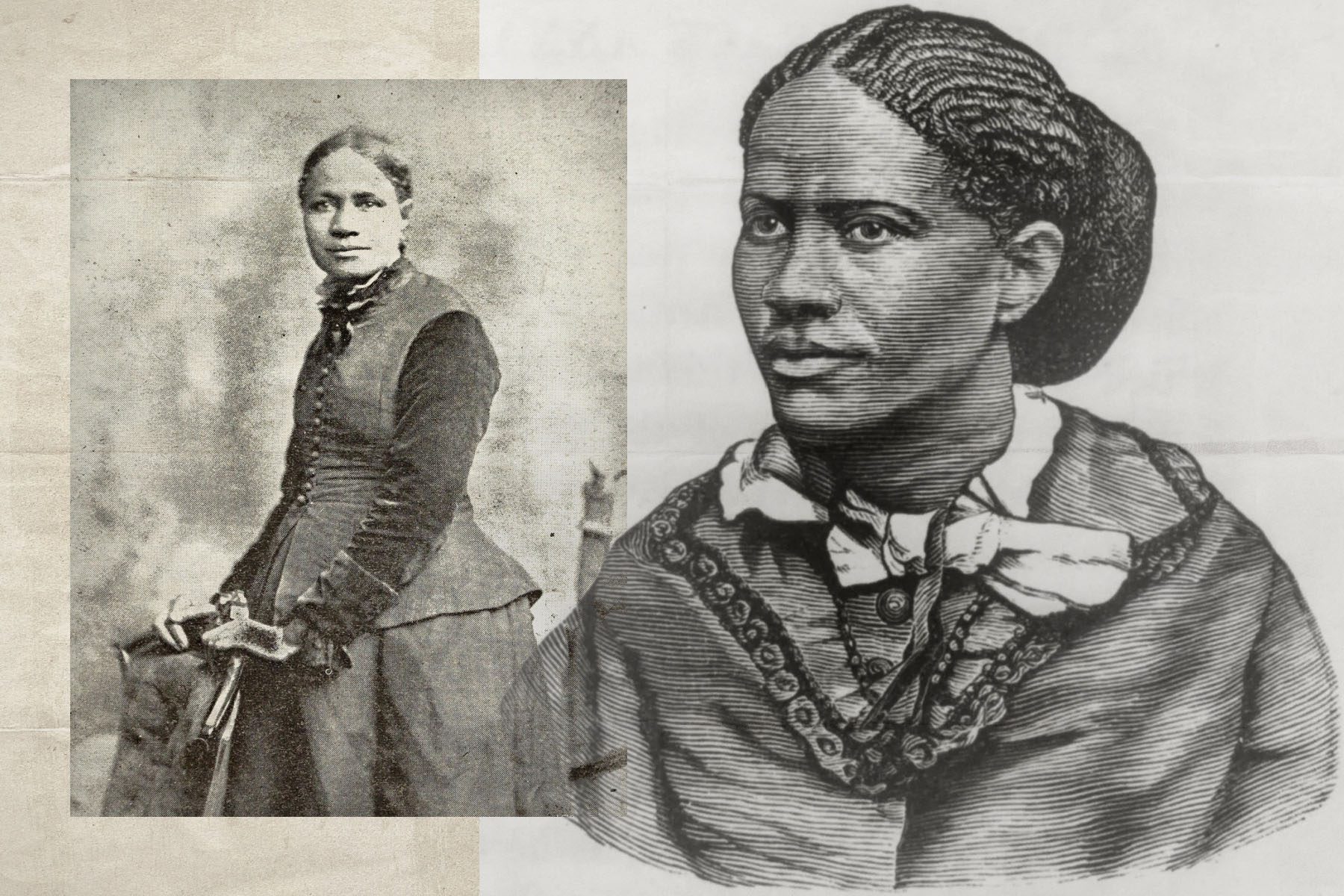This Black History Month, we’re telling the untold stories of women, women of color and LGBTQ+ people. Subscribe to our daily newsletter.
On this date 112 years ago, Frances Ellen Watkins Harper — author, poet, abolitionist and suffragist — died at the age of 85. As the “mother of African American journalism,” Harper has inspired generations of Black writers and media makers, and The 19th’s HBCU fellowship program is named in her honor.
Our fellows are a living testament to Harper’s enduring legacy, and to mark the anniversary of her passing as part of our ongoing Black History Month coverage, four of our fellows have reflected on what she means to them.
As someone who lived to be 85 years old at a time when the average life expectancy was in the 50s, Frances Ellen Watkins Harper lived a long, fruitful life. Yet, she did not live long enough to see women granted the right to vote via the passage of the 19th Amendment. She certainly did not live long enough to see Black women gain the protected right to vote with the passage of the Voting Rights Act of 1965. Still, during her lifetime, she fought for suffrage — a right that she knew she deserved even though she might not live to see it.
Her life reminds me of that ancient proverb, “A society grows great when old (wo)men plant trees in whose shade they know they shall never sit.” I am who I am today because of foremothers like Harper, Ida B. Wells, Sojourner Truth and so many others — women who taught us about intersectionality long before the term existed. These women used the power of the pen to transform the world they lived in.
Black history reflections — and the path forward
This story is part of our Black History Month coverage. From in-depth Q&As to staff reflections and our inaugural 19th Celebrates event, we’re focused on telling stories along the twin themes of Black joy and Black resistance. Explore our work.
Because of Harper, it is not unusual for a journalist like myself to uplift the fact that my reporting should be intersectional. It is not unusual for me to seek to center the most marginalized voices in my reporting. That is what she did. I am thankful for the trees that she planted and the example she set for journalists who are living today. — Rebekah Barber, editorial fellow
In 85 years of life, Frances Ellen Watkins Harper did not stop demanding what was rightfully hers. And more than 100 years after her death, her words still hold their power.
To me, Harper’s writings lay bare a life of advocacy, compassion and self-determination.
Born fewer than 50 years after the country’s founding, she witnessed much of the molding and mythmaking that shaped the United States as we know it today. She called it out on its injustices. Born free in a slave state, she was keenly aware of the fragility of her freedom.
She did not turn her back on those who were enslaved, instead dedicating her life to creating a just world.
“We are all bound up together in one great bundle of humanity, and society cannot trample on the weakest and feeblest of its members without receiving the curse in its own soul,” she said at the 1866 National Women’s Rights Convention.
Throughout her life, she wrote books, poems and speeches that galvanized people around her causes. She spoke for the abolition of slavery, the protection of freed people, the rights of women and the dignity of her race. She co-founded the National Association of Colored Women alongside Harriet Tubman, Mary Church Terrell and Ida B. Wells to address issues that hindered Black people’s social mobility following the Civil War.
My approach in undertaking this fellowship, her namesake, involves my whole self: Black, southern, woman and descendant of enslaved people are among the many nuances of my identity. And I am using my words not only for myself, but for those who need amplifying. With her blueprint and my continued efforts, I am pushing toward freedom.
Like she wrote in an 1854 letter, “I am but one, but can do something, and, God helping me, I will try.” — Daja E. Henry, editorial fellow
When I think of Frances Ellen Watkins Harper, I reflect on not only her tremendous contributions to social movements such as women’s suffrage and abolition, but I also reflect on the legacy she has left for Black women writers and storytellers. She was the mentor to Ida B. Wells, co-founder of the NAACP and one of the most famous investigative journalists of the 19th and 20th centuries. Harper was a brilliant orator, poet and activist that left a lasting roadmap for strategic social justice organizing.
-
More Black History Month coverage
- We asked lovers of Black literature to curate a Black resistance reading list. Here’s what they chose.
- Mothers of the movement: Black environmental justice activists reflect on the women who have paved the way
- For Rissi Palmer, country music is a form of Black resistance
I know that the work I do alongside my colleagues needs to be archived. I believe that Black women journalists can give key insights to global narratives and our collective movements. There needs to be a record of the work that has been done to transform the lives of marginalized folks around the world. To understand how social movements were led in the 19th century, I look to women like Harper. One hundred years from now, I want to continue the roadmap that began with our ancestors. When our descendants ask, “What were the issues? How did people work together? Who were the key players? Who were the change agents? How did we heal?” I want to be able to guide them through those queries.
Harper spoke of slavery as “The Great Problem to be Solved.” The problems that she faced — racism, sexism and other forms of discrimination — are still lived realities for Black women in the 21st century. As a journalist, I hope to be a trusted source for sharing authentic narratives, and I strive to elevate the conversations that often go unheard. I am grateful to Harper for her tenacity and courage. I am honored to follow in her footsteps. — Nzingha Hall, audience fellow
Gray is my absolute favorite color. It looks great on everything. We were given these beautiful customized 19th* sweaters for Christmas. Immediately I chose a soft heather gray as the base, and the closest thing to The 19th*’s signature purple for the text. It took me days, however, to decide on the words I thought worth the stitching. My initials? Just The 19th*?
And then I thought of the first time I came across The 19th and its asterisk. I thought of what that asterisk means and who it includes and of how much that intention left a mark on me. And how, before I could figure out “the how,” I’d sworn to myself that I’d be a part of it one day.
I thought of Frances Ellen Watkins Harper . . . of this fellowship created in her name. And the opportunity to take up her mantle, and to do so in a place that’s becoming a reflection and byproduct of her life’s work of interrogating power, working for abolition, suffrage and intersectional justice that reached everyone, not just those closest in proximity to whiteness and the patriarchy.
Especially Black women. Especially for people like me. I thought about how her work continues right here with us.
I thought about how neither The 19th nor its asterisk would be here without her life or the things she fought for but never got to see. And then, as dramatic as it sounds, the words hit me. And so, my beautiful gray sweater with the closest thing to The 19th*’s signature purple reads: “The 19th,* For Frances.” — Katherine C. Gilyard, editorial fellow





